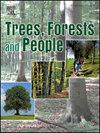Financial autonomy and income for emergencies drive women at the Sekyere Afram Plains District of Ghana to produce charcoal
IF 2.7
Q1 FORESTRY
引用次数: 0
Abstract
Although gender norms prevent females from accessing specific forest resources in some sub-Saharan African countries, some women defy the norms to engage in activities traditionally reserved for males. However, few studies have examined the factors that motivate females to defy gender norms. We investigated factors motivating some women in the Sekyere Afram Plains District of Ghana to produce charcoal as their male counterparts and the challenges they face in the production process. We collected data through surveys in 61 charcoal-producing households, focus group discussions, and field observations in three communities in the district. Desire to be financially independent of husbands, provide food for families in the slack season when new crops are not matured for household consumption, and attend critical social events like funerals and weddings motivate the women to produce charcoal. The women circumvent gender norms through collective labor arrangements, support from male family members, and deliberate efforts to resist social stigma. However, they face significant constraints, including the declining number of trees in their operational areas, forcing them to travel long distances in search of trees, health risks, and price volatility in the charcoal market. The study contributes to emerging literature on gender and natural resource governance by showing how women's adaptive strategies reshape normative boundaries in forest-based livelihoods, and underscores the complex interplay between gender, economic necessity, and environmental change.
财政自主和应急收入促使加纳塞基尔阿夫拉姆平原地区的妇女生产木炭
尽管在一些撒哈拉以南非洲国家,性别规范阻止女性获得特定的森林资源,但一些妇女无视这些规范,从事传统上只有男性才能从事的活动。然而,很少有研究调查了促使女性反抗性别规范的因素。我们调查了促使加纳Sekyere Afram平原地区的一些妇女像男性一样生产木炭的因素,以及她们在生产过程中面临的挑战。我们通过对区内三个社区61户产炭户的调查、焦点小组讨论和实地观察等方式收集数据。经济上独立于丈夫的愿望,在新作物尚未成熟供家庭消费的淡季为家庭提供食物的愿望,以及参加葬礼和婚礼等重要的社会活动的愿望,促使妇女生产木炭。女性通过集体劳动安排、男性家庭成员的支持以及刻意抵制社会污名来规避性别规范。然而,他们面临着重大限制,包括其业务区域的树木数量下降,迫使他们长途跋涉寻找树木,健康风险以及木炭市场的价格波动。该研究通过展示妇女的适应性策略如何重塑以森林为基础的生计的规范界限,并强调了性别、经济需求和环境变化之间复杂的相互作用,为性别和自然资源治理方面的新兴文献做出了贡献。
本文章由计算机程序翻译,如有差异,请以英文原文为准。
求助全文
约1分钟内获得全文
求助全文
来源期刊

Trees, Forests and People
Economics, Econometrics and Finance-Economics, Econometrics and Finance (miscellaneous)
CiteScore
4.30
自引率
7.40%
发文量
172
审稿时长
56 days
 求助内容:
求助内容: 应助结果提醒方式:
应助结果提醒方式:


